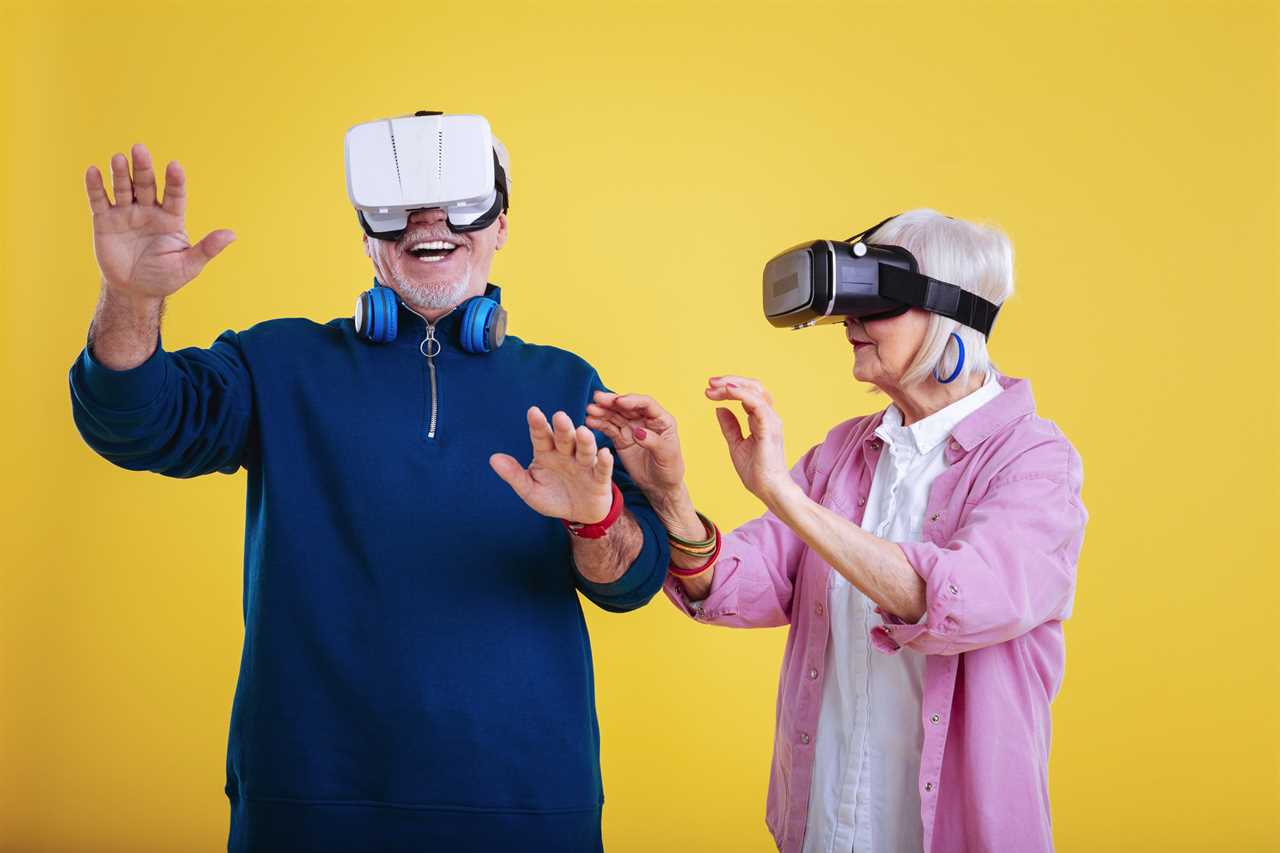
In the ever-evolving world of technology, the relationship between baby boomers and technology is a fascinating one. Born between 1946 and 1964, baby boomers experienced a world before the internet, smartphones, and social media. As technology advanced rapidly, some baby boomers struggled to keep up, leading to misunderstandings and generational tech gaps.
However, it’s important to note that not all baby boomers are technophobes. Many have embraced modern technology for baby boomers with open arms and continue to learn and adapt. This article aims to shed light on common baby boomer tech mistakes and misconceptions while highlighting ways to bridge the gap and foster digital literacy among all generations.
1. “The Cloud” is Just a Fluffy White Thing in the Sky

While it may sound like something out of a children’s book, the cloud is a network of servers that store data. Baby boomers often struggle to grasp this concept, leading to misunderstandings about data storage and security. It’s not a physical place but a virtual one, accessible through the internet. This means photos, documents, and other files can be stored online rather than on a computer’s hard drive.
Understanding the cloud is essential for backing up important files and accessing them from multiple devices. Baby boomers who are hesitant to use the cloud can start by storing a few non-sensitive files and gradually increase their usage as they become more comfortable with the technology.
2. Social Media is Just for Kids

Many baby boomers dismiss social media as a frivolous pastime for younger generations. However, platforms like Facebook, Twitter, and LinkedIn offer valuable opportunities for connection, networking, and staying informed. These platforms can help baby boomers reconnect with old friends, share photos with family, and stay up-to-date on current events.
LinkedIn, a professional networking site, can be particularly useful for baby boomers who are looking for new job opportunities or seeking career advice. Social media isn’t just about sharing selfies; it’s a powerful tool for communication and connection in the digital age.
3. Smartphones are Too Complicated

The sheer number of features and apps on a smartphone can be overwhelming for anyone, but especially for those who didn’t grow up with them. With a little patience and practice, baby boomers can learn to navigate their smartphones and unlock a world of convenience. Smartphones are like mini-computers that fit in your pocket, offering a wide range of functions beyond just making calls and sending texts.
They can be used to check email, browse the web, take photos, listen to music, and even pay for purchases. While it may take some time to get used to the touchscreen interface and various apps, mastering the smartphone can greatly enhance a baby boomer’s digital experience.
4. Online Shopping is Unsafe

Concerns about security and fraud are valid, but reputable online retailers have robust security measures in place. Baby boomers who are hesitant to shop online can start with small purchases and gradually build their confidence. Online shopping offers convenience, a wider selection of products, and often lower prices than traditional brick-and-mortar stores.
By learning to identify secure websites (look for “https” in the address bar) and using strong passwords, baby boomers can safely enjoy the benefits of online shopping. Many online retailers also offer customer support to help with any questions or concerns.
5. You Have to Be a Tech Genius to Use a Computer

While some technical knowledge is helpful, basic computer skills are relatively easy to learn. Many resources are available to help baby boomers develop their digital literacy, including online tutorials, community classes, and one-on-one instruction. Computers are essential tools for communication, entertainment, and information gathering in today’s world.
With a little effort, baby boomers can learn to use email, browse the web, and create documents. Libraries and community centers often offer free computer classes specifically designed for older adults, providing a supportive environment for learning new skills.
6. Technology is Ruining Communication

While it’s true that excessive screen time can hinder face-to-face interaction, technology and the older generation can also enhance communication. Video calls, instant messaging, and social media can help baby boomers stay connected with loved ones near and far. Technology has made it easier than ever to keep in touch with family and friends who live far away.
Video calls offer a more personal way to connect than just phone calls, allowing baby boomers to see and interact with loved ones in real time. Instant messaging and social media platforms provide convenient ways to share updates, photos, and thoughts with a wide network of friends and family.
7. Privacy Doesn’t Matter Online

Baby boomers often underestimate the importance of online privacy. Sharing personal information on social media or unsecured websites can lead to identity theft, scams, and other security risks. It’s essential to be mindful of what information is shared online and to use strong passwords to protect accounts.
Avoiding public Wi-Fi networks and being cautious of phishing emails are also important steps to protect privacy. Baby boomers who are unsure about online security can seek guidance from trusted sources or consult with tech-savvy friends or family members.
8. Tech Support is Only for Young People

It’s a common misconception that tech support professionals are only interested in helping younger users. In reality, many companies offer specialized support for older generation tech challenges. Whether it’s troubleshooting a computer issue or navigating a new app, baby boomers should not hesitate to reach out to tech support for assistance.
Many tech support services offer phone, chat, and email support options, making it easy to get help in a way that is most comfortable. Some companies even offer in-home tech support for those who need more hands-on assistance.
9. “Googling” is Cheating

Using a search engine to find information is not cheating; it’s a valuable tool for learning and research. Baby boomers who are hesitant to use Google can start with simple searches and gradually expand their skills. Google and other search engines are vast libraries of information, accessible at our fingertips.
They can be used to answer questions, find recipes, research health conditions, and much more. With a little practice, baby boomers can learn to refine their search queries and find the information they need quickly and efficiently.
10. Technology is Making Us Lazy

While technology can automate certain tasks, it also opens up new avenues for creativity and productivity. Baby boomers who embrace modern technology can find new ways to pursue their passions and hobbies. Technology can free up time by automating repetitive tasks, allowing baby boomers to focus on activities they enjoy.
Online learning platforms offer a wealth of courses and tutorials on various subjects, from photography to cooking to foreign languages. With the right tools and resources, baby boomers can use technology to expand their knowledge and skills, leading to a more fulfilling and active lifestyle. Plus, you can also use technology to power your side hustle.
11. “Hacking” is Just for Criminals

The term “hacking” has a negative connotation, but it can also refer to creative problem-solving and finding innovative solutions. Many baby boomers have a knack for “hacking” everyday problems in their own way. While “hacking” is often associated with cybercrime, it can also be a positive force. In the context of technology, “hacking” can mean finding clever workarounds for technical issues or customizing devices to suit individual needs. This is what is technically called ethical hacking.
Baby boomers who are resourceful and adaptable can apply their problem-solving skills to the digital world, making technology work for them.
12. Technology is Replacing Human Connection

While technology can facilitate virtual interactions, it can never fully replace the warmth and intimacy of human connection. Baby boomers who value relationships can use technology to enhance their connections, not replace them. Technology can supplement, not substitute, in-person interactions. Along the way, we’re also seeing revolutionary tech gadgets that are changing everyday life.
Video calls and social media can help bridge the distance between loved ones, but nothing can replace the feeling of spending time with someone face-to-face. By using technology mindfully, baby boomers can strike a balance between digital and real-world interactions, fostering meaningful connections with the people who matter most.
Bridging the Generational Tech Gap

As baby boomers and technology continue to intersect, it’s important to foster understanding and encourage digital literacy among all generations. By recognizing and addressing common misconceptions and tech mistakes, we can create a more inclusive and accessible digital landscape for everyone.
What are your thoughts on the evolving relationship between baby boomers and technology? Share your experiences and insights in the comments below!
|||-------------------------------------
By: Randell Suba
Title: 12 Things Baby Boomers Get Wrong About Modern Technology
Sourced From: www.dinksfinance.com/2024/06/12-things-baby-boomers-get-wrong-about-modern-technology/
Published Date: Fri, 07 Jun 2024 11:20:35 +0000
Did you miss our previous article...
https://coachingbusinessowners.com/funding/12-signs-your-spouse-is-spying-on-you-through-your-in-home-security-system






